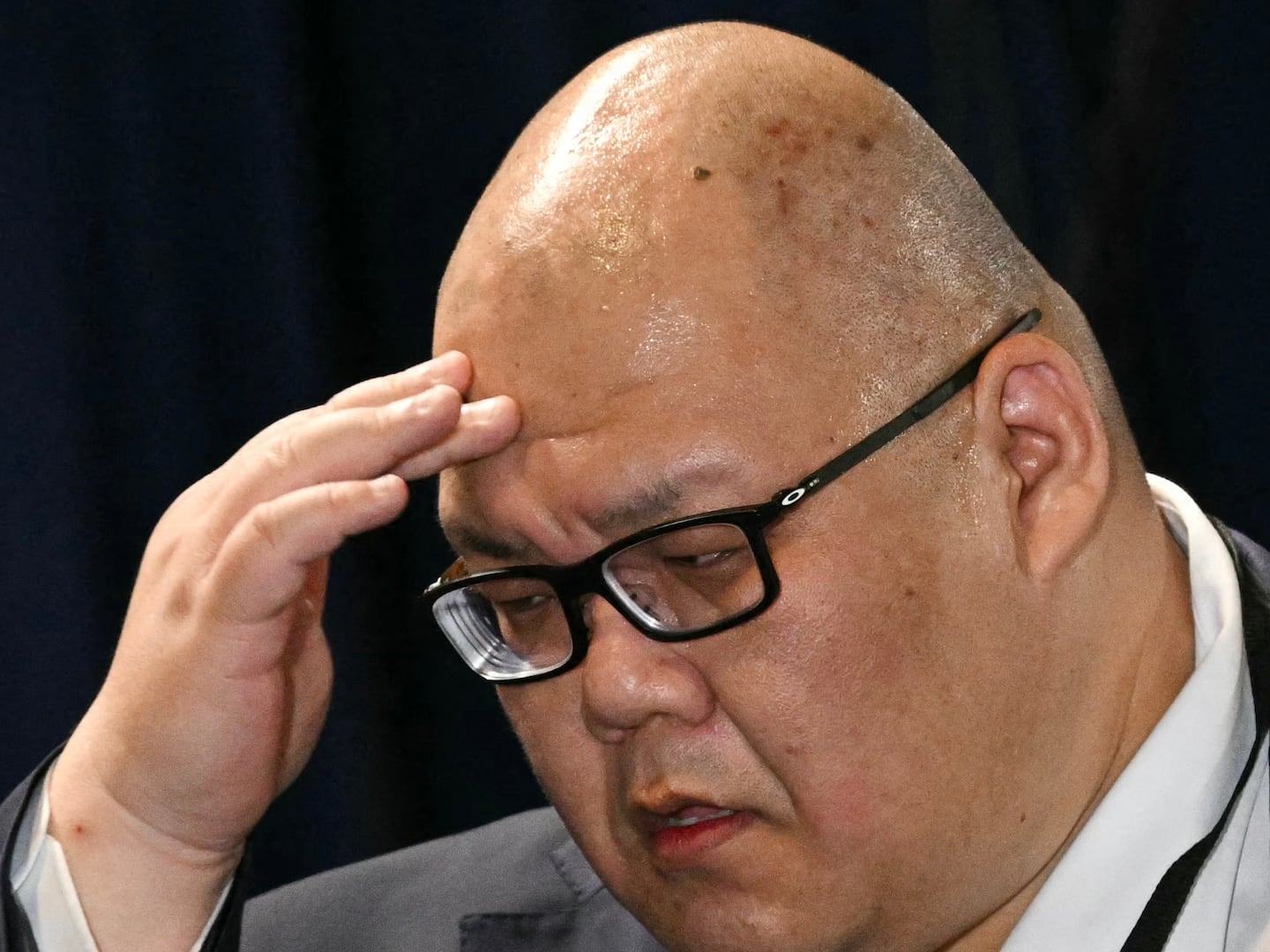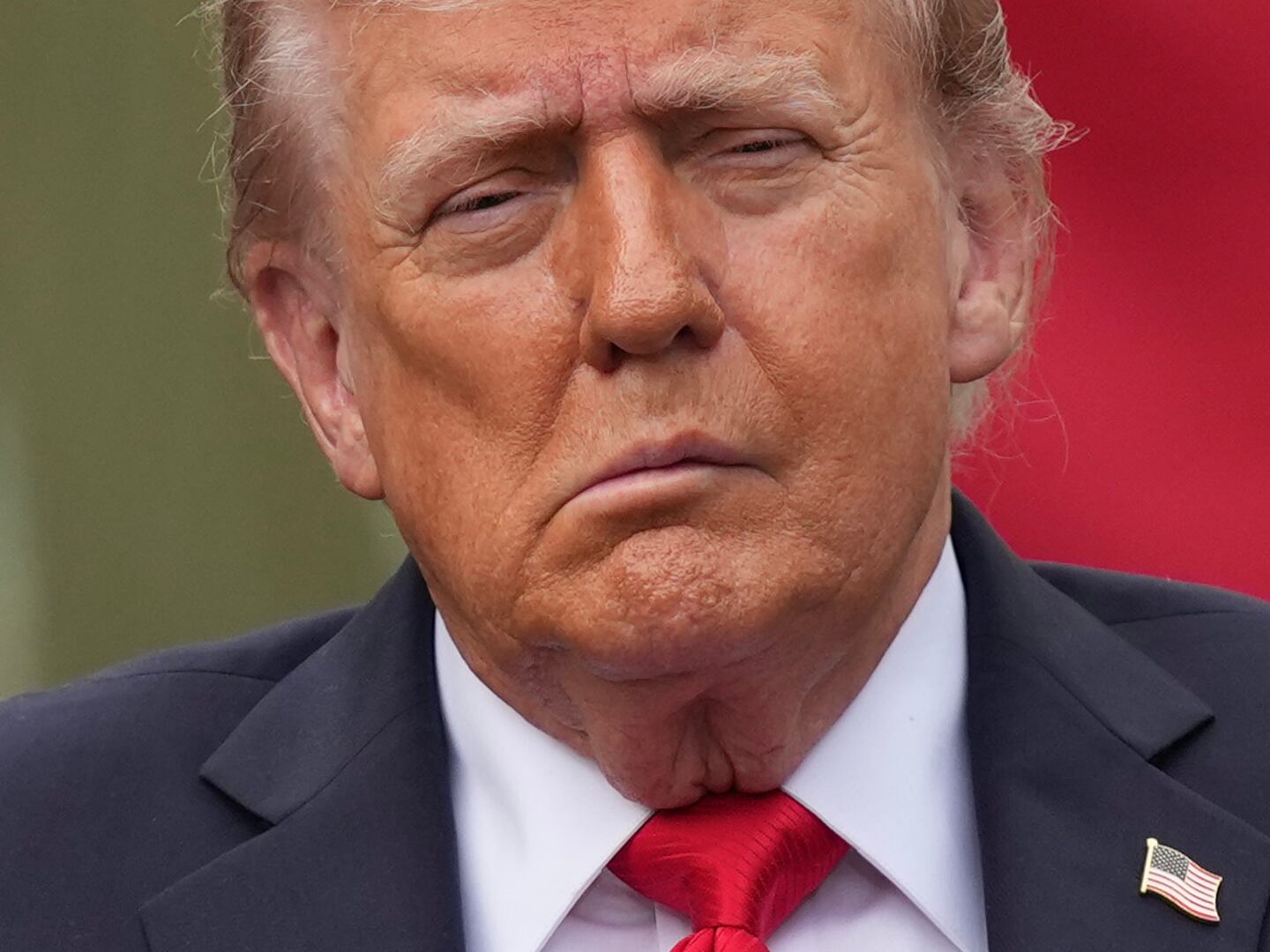Al Sharpton, who has been crusading in racial cases for three decades, has claimed a starring role in the Trayvon Martin case.
He’s also assumed a starring role in MSNBC’s coverage of the case.

These are colliding in ways that have nothing to do with journalism.
I’ve covered Reverend Al for a long time, back to the Tawana Brawley days, when he was mainly a New York figure in a leisure suit. He has every right to jump on the Trayvon Martin tragedy as a classic case of racial injustice.
It was hardly surprising that he flew to Sanford, Florida last week and addressed a protest rally over the 17-year-old boy’s death. He also met with Trayvon’s parents and accompanied them to a meeting with Justice Department officials. Sharpton is, in short, a partisan who is helping to represent the family against the shooter, neighborhood watch captain George Zimmerman.
Around 5 p.m. at the rally last Thursday, Sharpton bellowed: “We came for permanent justice. Arrest Zimmerman now! That’s what this rally is about.”
At 6 p.m., Sharpton hosted his MSNBC show, Politics Nation. His guests were the slain teenager’s parents. Here’s how he opened the show:
“Nearly a month ago, a tragedy took place just beyond the gates behind me. Earlier today, Trayvon’s parents, attorney and I met with the Justice Department here. And later tonight, we rally for justice for Trayvon.”
About an hour after that, Sharpton was addressing the rally again. He appealed for funds: “I want us to to get some money out. I want some of you business types, some of you preachers…And now, I’m going to start off with twenty five hundred dollars,” he said, holding up a check.
“Trayvon represents a reckless disregard for our lives that we’ve seen too long. And we’ve come to tell you tonight: enough is enough.”
It seems to me that by sandwiching his show between his activism, Sharpton was essentially covering himself.
In what other context would a news organization allow someone to become such an integral part of the story and then represent the organization? Shouldn’t Sharpton have to choose between his dual roles? Would it be okay if he attended a rally for President Obama, asked the crowd for money and then interviewed Obama immediately afterward?
On my CNN program Reliable Sources, Eric Deggans, media critic for the Tampa Bay Times, made this point: “The problem is that MSNBC has to cover this as a news organization and as I said, we’re getting to the point where George Zimmerman is starting to speak up, the man who shot Trayvon Martin. He has an attorney. He has a side. Is he going to feel like he can talk to NBC News or MSNBC and be treated fairly when one of their signature on-air personalities has spent weeks talking about how he should be arrested and he should be in jail?”
Actually we don’t know much about Zimmerman’s side, other than his lawyer says he wound up with a broken nose and a friend says he cried for days after the shooting. But eventually we will, and MSNBC will have to cover it.
The situation reminds me of an incident in the spring of 2009, when Sean Hannity was going to tape his Fox News show at a Tea Party rally in Cincinnati. Organizers were charging admission to the event, with all proceeds benefitting the Tea Party group. Fox executives canceled his appearance and ordered him back to New York—this at a time when the network was increasingly becoming identified with the Tea Party. Hannity had broadcast from other rallies; at one, he interviewed Fox News contributor Newt Gingrich.
I’m not saying Sharpton shouldn’t be outraged by what happened to the teenager with the bag of Skittles. I’m outraged by what happened. Nor do I have any illusions that this former presidential candidate is a journalist. But even commentators have to abide by certain rules, and in this case, by playing on both sides of the camera, Reverend Al has obliterated them.
Update: The network is doubling down on Sharpton's role. MSNBC spokesman Jeremy Gaines has given this statement to Deggans: "When Rev. Sharpton joined MSNBC, it was with the understanding that he would continue to do his advocacy work. We're fully aware of that work and we have an ongoing dialog. His participation in these events is very public and our audience is completely aware of where he stands on the issues. It's because of this work and his decades of activism that Rev. Sharpton brings such a unique perspective to our lineup."






